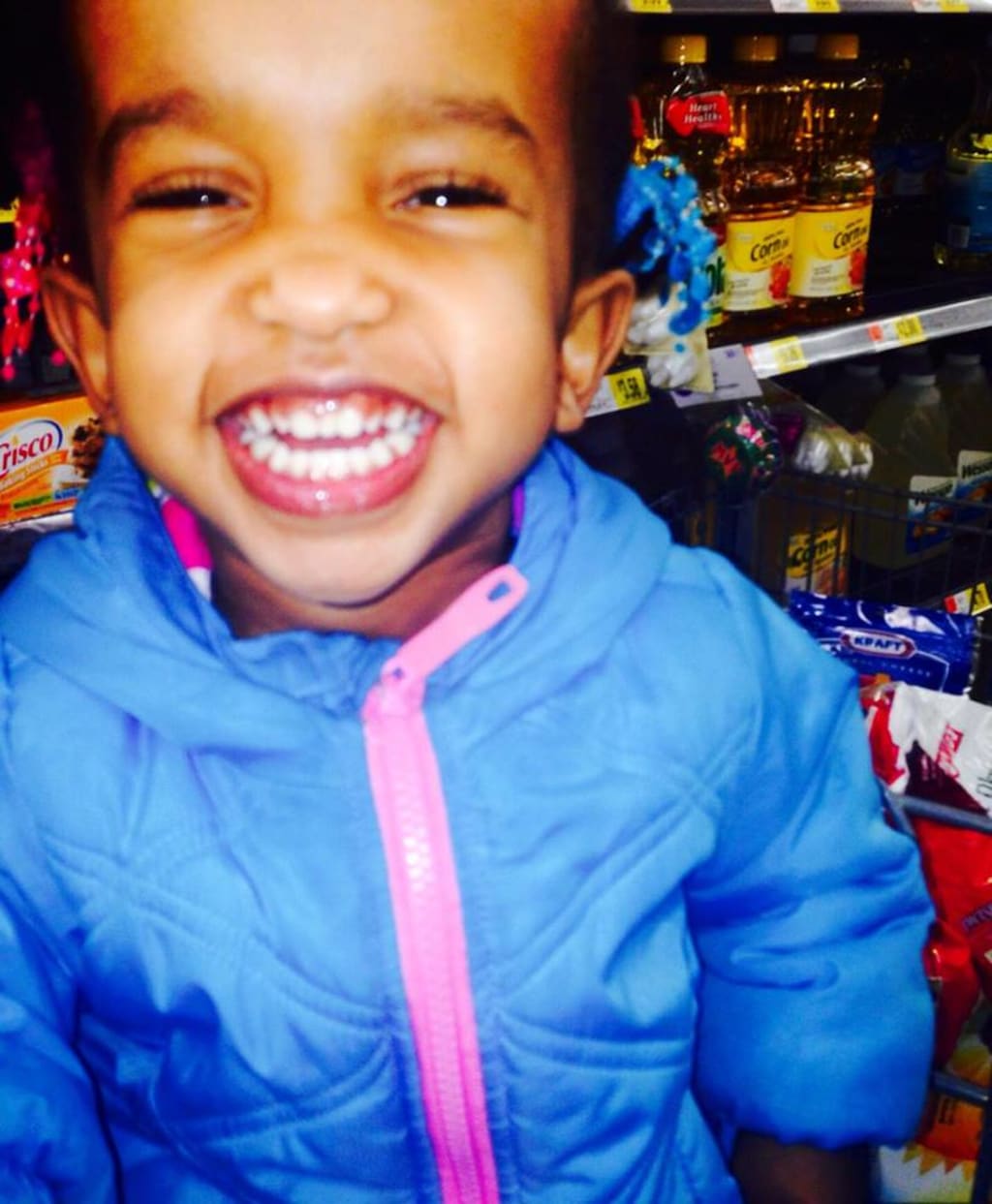Resilience
A Congenital Disease: A Narrative

On one gloomy afternoon in Ms. Daly's art class, my itch to finish my project was fueled by something other than my deep contempt for pottery. At 3:30 PM, I received a joyous phone call from my dad that my mom was rushed to the hospital to give birth to a unique baby girl named Yasmine.
"She's beautiful Selma. Your concerns about mama having a risky pregnancy can rest. Yasmine is healthy," my father said in an uplifted voice.
My mother endured several complications in her first and second trimesters that left my family perpetually anxious about her health, and the baby’s. She was 43 when she got pregnant, and her only rationale for having another child at this older age was that her mother—my grandmother—had her youngest when she was 42. Her decision made me realize that there was an outstanding cultural barrier that my parents could not see beyond. They did not seem to understand that genetics and family history only play a partial role in health outcomes, and that chronic diseases such as diabetes and high blood pressure can make a pregnancy high-risk, despite having a legacy of successful older-age pregnancies. Ultimately, I learned to be gentle with my parents for having such different cultural views, and I always let health education be the basis for cultivating a rich relationship between us, rather than letting it become a source of disagreement.
"Selma Ahmed, your father is waiting in the main office. Please pack your belongings and come down to be picked up," the loudspeaker boomed in the hallways.
The car ride to the hospital was oddly quiet, but I attributed that to the persisting tension that lingered among us for the past nine months. When I finally entered the labor and delivery room, I was surprised to find my tired mom alone in a dim, cold room, only to learn that Yasmine was in a separate ward. I embraced my mom and tucked her hair behind her ear, softly congratulating her for the gift she gave us. After exchanging some small talk about the delivery experience, I followed a nurse to the NICU to meet my new sister.
The nurse trotted lightly ahead of me, her vibrant red hair falling down her back, complementing her regal, navy-blue scrubs. We entered a dark, excessively warm room that had nothing but portable basinets and industrial beeping gadgets everywhere. She led me to Yasmine, and immediately my heart dropped. I tried hard, but I could not hide my distraught facial expressions. My voice shook, "Doc, is it just me, or does Yasmine's stomach seem enlarged? Is she OK?"
The doctor barely lifted his head when he responded,
"Your mother had severe gestational diabetes and your sister is simply experiencing the side effects. She'll be fine once her glucose levels normalize."
I almost believed him.
Now, I like to consider myself inquisitive by nature, especially when there's a scientific component involved, and the doctor’s response did not suffice. I simply thanked him and embarked on a mission to find out what was truly wrong with Yasmine. I compulsively paced past each window of the NICU, counting the differences I observed between the pink babies I saw, and mine. I soon realized that although Yasmine’s stomach was puffy, she was markedly smaller than the other babies and had very poor muscle definition. I returned to Yasmine’s ward and sat on a cushioned bench outside. My eyes swelled with warm, salty tears from shock, frustration and grief. Everything came crashing down. The violent thoughts swirling in my head were disrupted by a warm body that held me tight. It was the red-headed nurse, and our subsequent interaction formed the basis for my drive to become a doctor.
She said: "Love, your life will be different now. You will be the bearer of some new responsibilities, but you can handle more than you know. Just stay hopeful."
I do not remember what came over me in that moment, but the nurse's straightforward demeanor had a profound impact on my outlook towards the realm of medicine and Yasmine’s condition until this very day. Effectively, this nurse introduced me to the concept of empathy, something I vow to carry with me as a doctor. She showed me that she cared about my pain, without necessarily sugar-coating things like my dad did on the phone. Aside from the emotional comfort, her suggestion to stay hopeful resonated with me in college and graduate school. For a while, I did not know where my source of hope was going to come from, however my past advanced coursework in the medical sciences and research experience just-so-perfectly gift me with that hope I need. Undeniably, medicine and science can accomplish that which is seemingly far-fetched, including reversing a devastating disease like my sister’s.
Sometimes I sit back and wonder if I will ever gain any artistic talents in life, and while I do truly wish I had better pottery skills, I can’t help but also think that maybe my talents lay somewhere else for a reason. As I grow into my passion for healthcare, I realize that my aspiration to be a physician perfectly mirrors the yearning I feel to see a for cure my sister, and because of that alignment in my motivations, I am dedicated to bringing the innovations of medicine to resilient families like mine who need a little reminder that there is always a reason to stay hopeful.





Comments
There are no comments for this story
Be the first to respond and start the conversation.